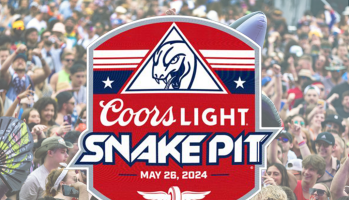The biggest decision made by the NFL and its owners Tuesday was not where the Super Bowl will be played in 2014. Though it unsurprisingly got lost in the New York moment, the more significant move was tabling a vote on whether to apply the new overtime format to the regular season. And if you ask me, the NFL should gone one step further and repealed the new revisions for the postseason. Not only would that bring continuity and uniformity to the 2010 season, but also it would have been the right thing to do.
Here’s why the new overtime format should be discarded forever.
• What happened to worrying about player safety? Player safety has been one of the main focuses of NFL commissioner Roger Goodell since he took over in 2006. Rules have been put into place that serve to protect both defenseless players and quarterbacks. The proper diagnosis and treatment of concussions has become a point of emphasis. The wedge formation has been outlawed on all kickoff returns.
Yet despite his record up to this point, Goodell has been one of the major proponents of the new overtime format. That makes no sense. While it’s unclear how much longer playoff overtime games will be with the modifications, the fact is there will be more plays, and in some cases a lot more plays. Every play in every NFL game carries with it a risk of injury. And every play also contributes to the wear and tear that takes a physical toll on NFL players, whether they actually get injured or not. Both of those aspects will be even more pronounced in an extended overtime period, when players are already fatigued and playing more plays than they are normally accustomed to playing.
For a recent example, look no further than Cedric Griffin tearing his ACL in overtime during last year’s NFC Championship Game. Though there is no way to adequately quantify what the negative health repercussions of the extra time will be, there is no way it can help the health of the players. That much we know for sure.
• How exactly does this new OT work? No matter how succinctly and concisely overtime reform advocates try to explain it, the new overtime format is confusing for some die-hard fans, let alone the casual ones. The sudden death format, in which the first team to score wins, made sense to me and was easily digestible. If Eagles quarterback Donovan McNabb was unaware in 2008 that games could end in ties, how many players will be ignorant to these new rules?
It really doesn’t matter how good of a job the broadcasting crews do attempting to explain the new overtime rule. Many of the people watching or listening to the game still won’t get it. And then there are the strategies that need to be considered. Football is already complicated enough for casual fans who are attempting to really understand all of the intricacies of the game. Why make it more difficult?
• Who even wanted this change? It wasn’t the players. And it definitely wasn’t the coaches, considering the owners went out of their way to hold the initial vote in March while the coaches were golfing in order to pass the overtime reform for the postseason while the “football people” were away, as Giants owner John Mara put it. That seems ill-advised, considering it was and is a football decision. So none of the people who are really physically and emotionally invested in these games wanted to alter overtime, so it must have been a groundswell among the fans, right?
Not really. A straw poll of recent listeners on Sirius NFL Radio indicated it was far from an overwhelming majority that felt the need for overtime reform. And most of the ones who did were either scorned Vikings fans still upset about last season’s NFC Championship Game or people who had other ideas for overtime reform and don’t like the new format anyway.
Instead it seems like the real impetus to change overtime came from certain prominent media members, like my colleague Peter King, who felt too much was being decided by the flip of a coin and pointed to stats that showed teams winning the coin toss were winning more than 50 percent of the time. Those members of the media must have done a good job selling Goodell on their beliefs because all indications are Goodell was the one who made the big push to get the owners to make this change in March.
• Why make this change in the first place? Evidently there was a growing fear among some people that a Super Bowl could end with the team that wins the coin toss marching down the field and kicking a field goal to win while the other team’s offense sat idly by. Those people point to the recent NFC Championship Game, in which Drew Brees led the Saints to a game-winning field goal on a short field after they got outstanding field position on the kickoff return.
First of all, so what if that is how some games end? Secondly, what about the Cardinals vs. Packers game in the wild-card round two weeks prior? If ever a game would seemingly be decided by the coin toss, it was that game. Neither team played much defense in the 51-45 shootout.
Yet the game ended early in overtime when Aaron Rodgers, quarterbacking the team that won the overtime coin toss, fumbled the ball after getting hit by Cardinals defensive back Mike Adams. Karlos Dansby scooped up the football and returned it for the game-winning touchdown. So the point is no matter what the percentages may be or what evidence is presented, anything can happen.
Not to mention that both teams in overtime games already have a fair and equal opportunity to win during the 60 minutes of regulation. The entire concept of overtime is that it is extra time. It is designed to end the game and determine an outcome. Putting provisions in that will serve to extend that period kind of defeats the purpose.














